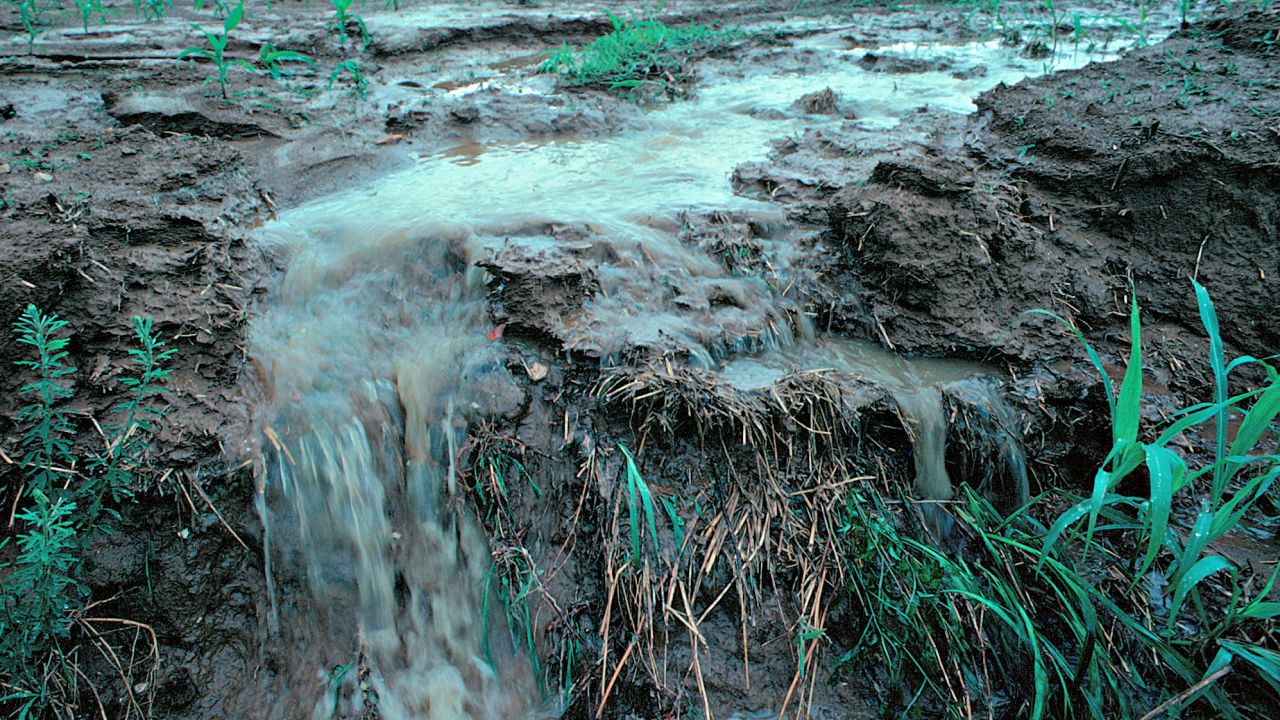
A new analysis in Choices Magazine shows that voluntary agricultural pollution programs still aren’t working.
The report by Marc Ribaudo, a senior economist for the Economic Research Service of the United States Department of Agriculture, has confirmed what EWG has long argued: voluntary policies do not substantially decrease the agricultural pollution that is ruining American waters. Unless the government requires pollution controls via regulations that carry the force of law, or unless the taxpayers kick in substantially more money, voluntary pollution controls have only a marginal impact.
Billions of taxpayer dollars have been invested in strategies to reduce runoff of soil, chemical and nutrients over the past 30 years, and although a few water quality indicators have improved, the majority have actually gotten worse.
Currently, the Environmental Protection Agency considers more than 5,000 bodies of water across the U.S. -- and the vast majority of Midwestern waters -- “impaired.”
The chief culprit: farm run-off.
Ribaudo contends that most voluntary agricultural pollution programs target specific ailing watersheds but don’t focus on the most likely polluters. Since “voluntary” means that farmers can choose to participate, those who are the biggest offenders are less likely to volunteer. Numerous studies have shown that a minority of farmers generates the majority of agricultural runoff. Unless the big polluters take part in runoff reduction programs, the problems they create more than outweigh the progress made by the smaller polluters.
The conclusion: if we focus on farms that contribute the largest share of agricultural pollution to lakes and rivers, we can make real strides toward improving water quality.
After decades of voluntary strategy failures, it’s time for the nation to implement policies that work and that require all landowners to achieve a basic standard of care. Measurable progress in reducing soil, chemical and nutrient runoff from farm fields must begin with simple rules that apply equally to all landowners. While many conservation practices are unique to specific situations, certain practices are so fundamental that they have a benefit everywhere they are applied. One such effective, inexpensive technique is establishing buffer zones between water bodies and crop fields. If farmers were mandated to implement this and other basic techniques, they could improve water quality far more than voluntary practices have accomplished.
The nation has already lost several decades of opportunity thanks to voluntary programs. How many more years will we stick our heads in the sand and pretend that these policies are working?



